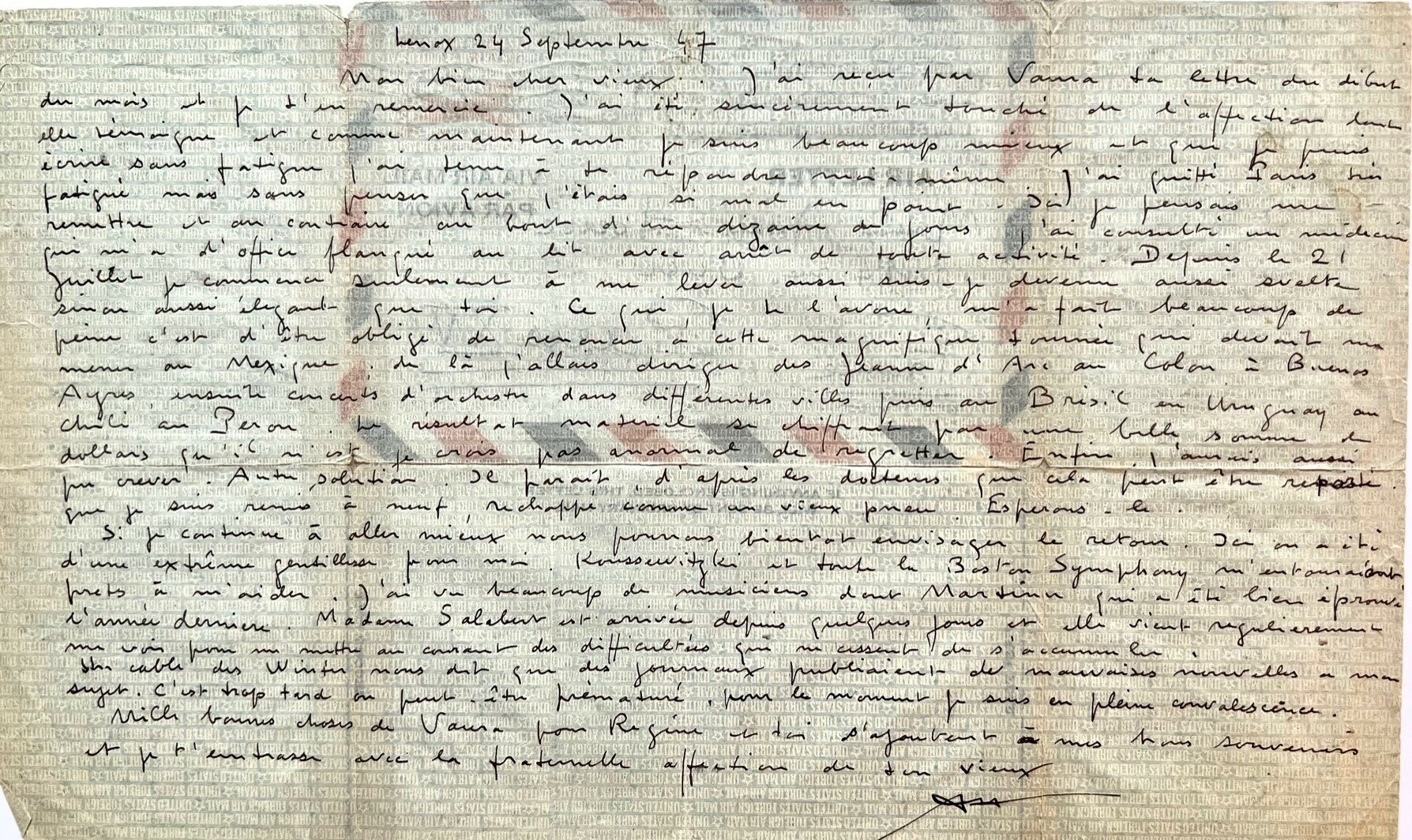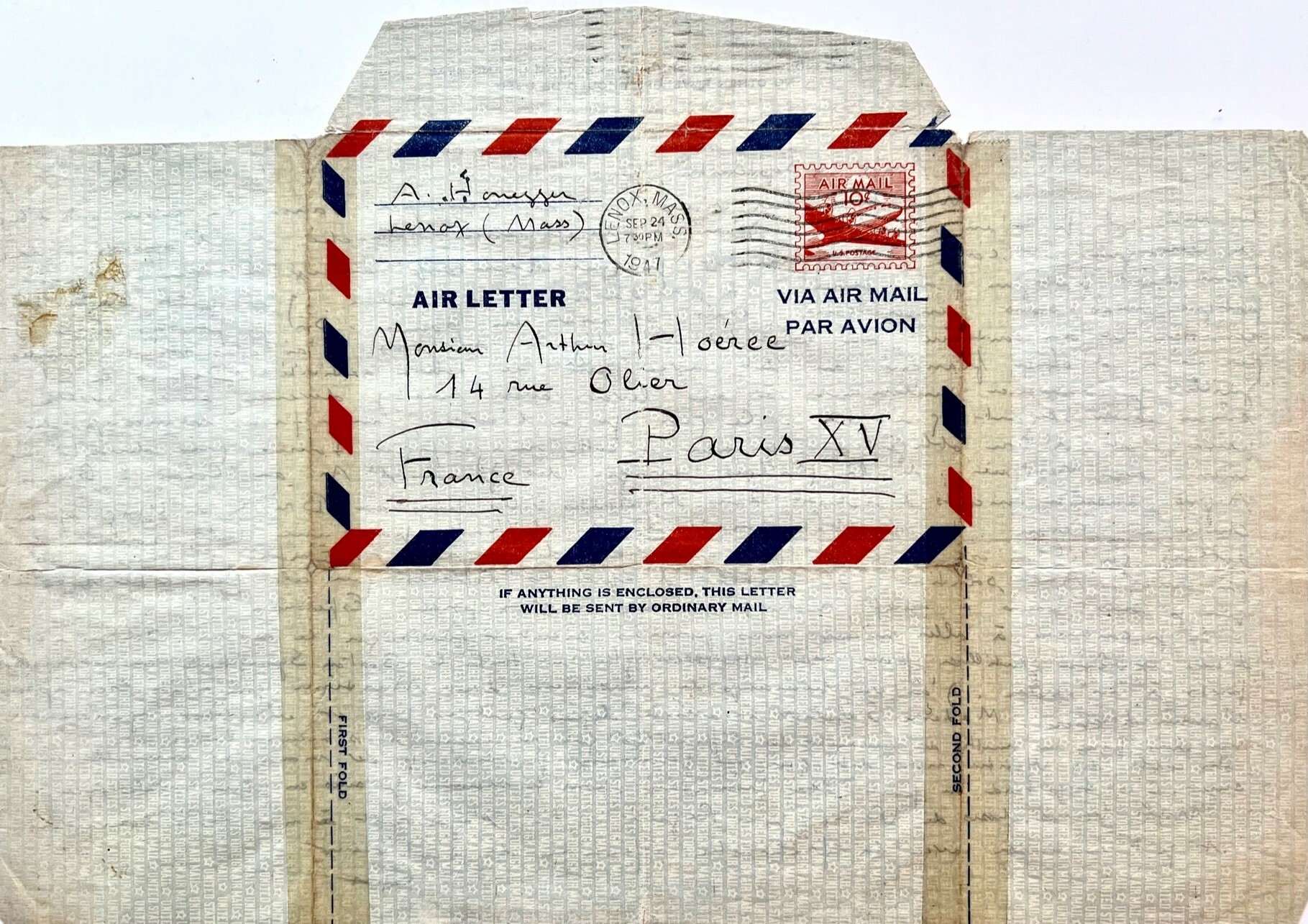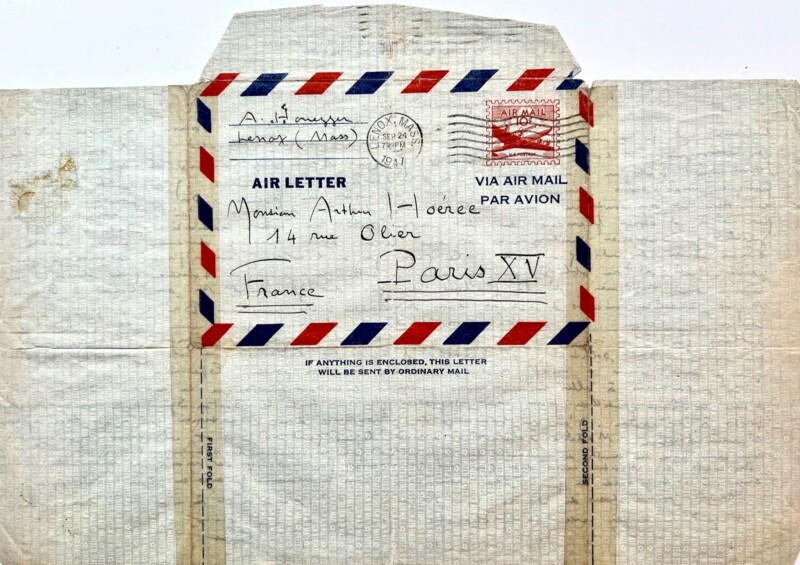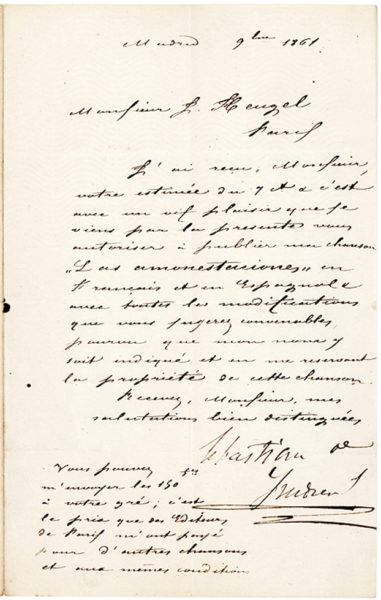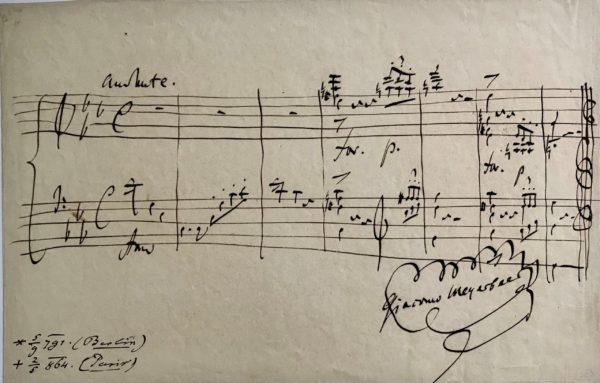If I continue to be better we will soon be able to consider the return. Here, people have been extremely kind to me. Koussewitzki [sic] and the entire Boston Symphony were surrounding me, ready to help. I saw a lot of musicians including Martinu who was greatly tested last year. Mrs. Salabert arrived a few days ago and she regularly comes to see me to inform me of the difficulties that continue to accumulate.
A cable from the Winter’s tells us that some newspapers were publishing bad news about me. It’s too late or maybe premature; at the moment I am in the midst of convalescence.
A thousand good wishes from Vaura for you and Régine are to be added to my fond memories and I kiss you with the brotherly affection of your old man.”
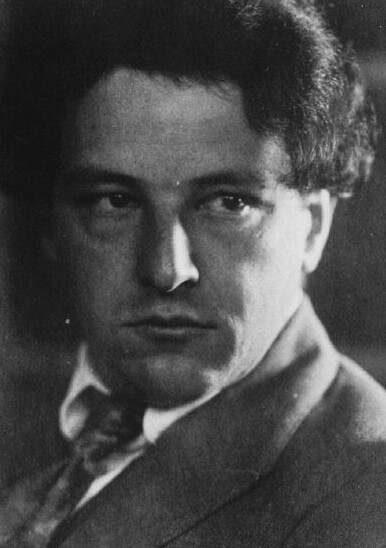
Arthur Honegger
In 1920, French composer Darius Milhaud gathered together six composers, including Honegger, and introduced them to the critic Henri Collet who noted their joint musical interests and dubbed them Les Six. Despite his inclusion in the group, Honegger’s music was weightier and more somber than that of his colleagues. Inspired by political turmoil, history and war, Honegger composed such works as Cris du Monde, Antigone and Symphonie Liturgique. In 1938, his “dramatic oratorio” Jeanne d’Arc au bûcher premiered in Basel with Ida Rubinstein, who had commissioned the piece, in the title role. Additional performances were prevented by the war until concert performances of the work in Strasbourg in 1947 and 1948 as well as the 1948 American premiere, for which Charles Münch conducted the New York Philharmonic. During his U.S. tour in 1947, Honegger suffered a heart attack, curtailing his tour as outlined in our letter and leading to an overall decline in his health.
Our letter mentions the concern shown by the Boston Symphony Orchestra and its conductor Serge Koussevitzky (1874-1951). From 1924, when he became the BSO’s conductor, until his death nearly thirty years later, Koussevitzky exerted an enormous influence on the American musical scene. A champion of such important composers as Barber, Copland, and Piston, he also founded the now-acclaimed Tanglewood Festival in Massachusetts as well as the Berkshire Music Center and the Koussevitzky Music Foundation that commissions new works from composers worldwide.
Prolific Czech composer Bronislaw Martinů (1890-1959) presented his symphonic triptych, La bagarre, to Koussevitzky at a café in Paris and the maestro led the Boston Symphony Orchestra’s premiere of the work in 1927, the beginning of a long and fruitful relationship between Martinů, Koussevitsky and the BSO. In 1946, Koussevitsky offered Martinů a summer teaching position at the Berkshire Music School, where he fell from a balcony and fractured his skull that led to a long and painful recovery, undoubtedly the troubles referred to in our letter.
Honegger met his wife, Andrée Vaurabourg (“Vaura”), while studying at the Paris Conservatoire. One of the foremost teachers of counterpoint and harmony, she counted among her pupils Pierre Boulez and became the primary interpreter of Honegger’s music. However, their relationship was troubled from the start due to his simultaneous involvement with her close friend, mezzo-soprano Claire Croiza, who became pregnant with his child. He chose to marry Vaura (three weeks after Croiza gave birth to their son, Jacques) on the condition that they live apart so Honegger could focus on composing, which they did, even after the birth of their daughter, only residing together during his final illness; he died in Vaura’s arms.
Hoérée was a lecturer at the Sorbonne, wrote music criticism for La Revue Musicale, and published several works on French composer Albert Roussel. A successful composer of film music, Hoérée was also a frequent collaborator of Honegger, but his intended book about the composer never materialized. Our letter sends greetings to Hoérée’s wife soprano Régine de Lormoy, the dedicatee of Honegger’s 1926 La Petite Sirene.
Mica Salabert (1896-1991) was the wife of French music publisher Francis Salabert, and his sole heir when he died in a plane crash in December 1946. She devoted herself to learning her former husband’s business and, with Honegger’s support, developed it into the one of the largest of its kind in Europe. She later recounted: “It was really two of my composers who saved me: Poulenc, and especially Honegger, who said to me, ‘Let’s go to work, Mica. You studied Egyptology at the Sorbonne; a woman who knows how to decipher hieroglyphics will be able to learn equally as well how to publish music,’” (“Madame Salabert: Enfant Terrible,” Music Journal, Alvis).
Penned on a self-enclosed airmail mailer which is reinforced along two folds by “magic” tape on the address panel. Normal wear and in very good condition.

